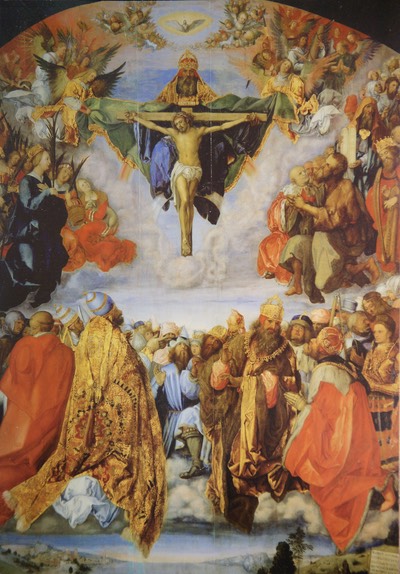Catholic voice of calm conservatism: Cardinal Müller attempts to bring order out of the chaos
Now that the dust has settled on last week’s controversial National Conservatism (NatCon) conference in Brussels, there is a chance to reflect on its impact at (and even on) the heart of Europe.
The gathering of leading conservative academics and politicians, including Suella Braverman MP, Nigel Farage, and renowned public figures such as Cardinal Gerhard Müller, faced considerable opposition. It had two venues that were due to host the event suddenly cancel on it – the second less than 15 hours before the conference started – with the third venue ending up being surrounded by police and nearly shut down too.
Groups such as Antifa, a left-wing anti-fascist and anti-racist political movement in the United States, had mobilised against the conference, accusing it of spreading “toxic lies”.
The Belgian police had initially reassured the organisers that the conference delegates would be “fully secured against any protests that might be planned”. And yet by the middle of the first day, on the orders of the Mayor of Brussels the city’s police officers had blockaded the event and prevented people from entering, including not permitting food or water to be brought in. Suella Braverman was giving a speech on the “rights radicalism” of the European Court of Human Rights at the time.
Nigel Farage during his address thanked the Tunisian owner of the
hosting Claridge venue for standing up to intimidation. He noted that the host
had received direct phone calls from the mayor putting pressure on him, and
that his business and family had been threatened by activists.
It fell to Cardinal Müller, a former prefect of the former Congregation for the Doctrine of the
Faith (now Dicastery for the Doctrine of the Faith), to end the opening day
with an attempt at formulating what a harmonious vision of Europe might look
like – in spite of what was happening outside the venue entrance.
The cardinal observed that he had come to the conference “as a
theologian rather than a politician”, and his appearance preserved an
apolitical hue. Any future of Europe, he said, must have the “moral
responsibility for the peace among different nations”, whilst living with the
“richness” of differing cultures and traditions”.
Lamenting the attempt to have the event cancelled, the cardinal deplored
“political ideologies” that seek to dominate and that act “against logos”.
Highlighting those medieval universities that acted with independence from political power, Cardinal Müller said he believed that “professors are intelligent enough and do not need the help of politicians who have never studied anything”.
Freedom of conscience is vital, the cardinal emphasised, whether confronting “parliaments who want to change the nature of biology” or in the case of Alexei Navalny’s “unbreakable” spirit in the face of Vladimir Putin.
Afterwards, I spoke to the cardinal about how he would address the
problem of what might appear divided loyalties between the national identity of
individual Catholics and their relationship to the universal Church. In
response, he stressed the importance of believers not seeing themselves
“merely as a number in an ideological machine” and stressed that the
universality of the Church intends to complement the nation-state.
When asked how British Catholics should deal with their differences over the
likes of Brexit, Cardinal Müller mused that “something went wrong
with the bureaucratisation” of the Eurocracy that is meant to help govern EU
actors and related interactions. He advised the celebration of differences:
from traditions to the distinct histories of the four great nations that
constitute the UK.
At the same time, he said that Europeans must also be “proud of their own history”, while destruction of other cultures or institutional moves to make culture simply uniform would be another form of a “totality of ideology”.
On the conference’s second day Viktor Orbán, prime minister of Hungary, gave the third keynote address on “Is there a role for Christianity in Europe?”
Orbán argued that it is difficult to say whether “we are still Christian nations or not”, with the “mixing of civilisations” confusing the “intellectual horizons of both”. He noted the deteriorating orientation towards the eternal questions of life among Hungarians. As a result, he argued that there is a need for the State insisting on “cultural values”, in areas ranging from hospitals to heritage, in order to address the issue of “kids not wanting kids”.
During the conference, I heard murmurs of anti-clericalism: that the
Church was “undoubtedly on the side of the EU on migration”. Yet equivocating
an eternal Church with earthly concerns about being pro- or anti-Eurocracy
diminishes the distinct Catholic spirit that I sensed at the NatCon conference.
While prayers may have been offered up to assist NatCon’s lawyers presenting
their challenge to the actions of the mayor and police authorities – after all,
they won – faith is not a tool for national conservatism. Catholicism transcends
national concern, while it still needs to be involved.
Hence if national conservatism is to succeed in bringing “common sense back to
a common-sense ideology”, it must recognise the role that the Church and its
figures have in arresting cultural decline, rather than focusing and relying on
national optimism.
Photo: Screenshot from X of Cardinal Gerhard Ludwig Müller speaking at the
National Conservatism conference in Brussels.
Ciaron Tobin is a student at Magdalen College, Oxford, and a Catholic Herald intern.

